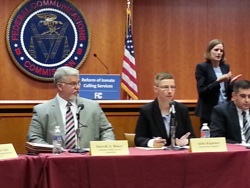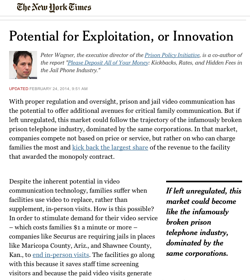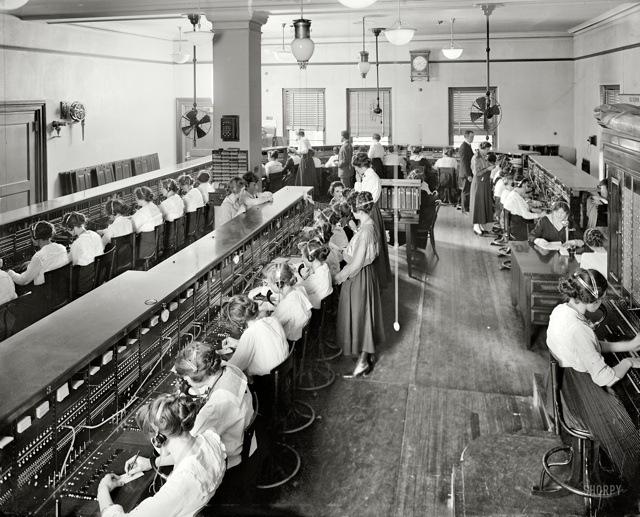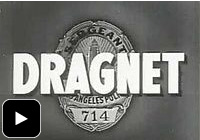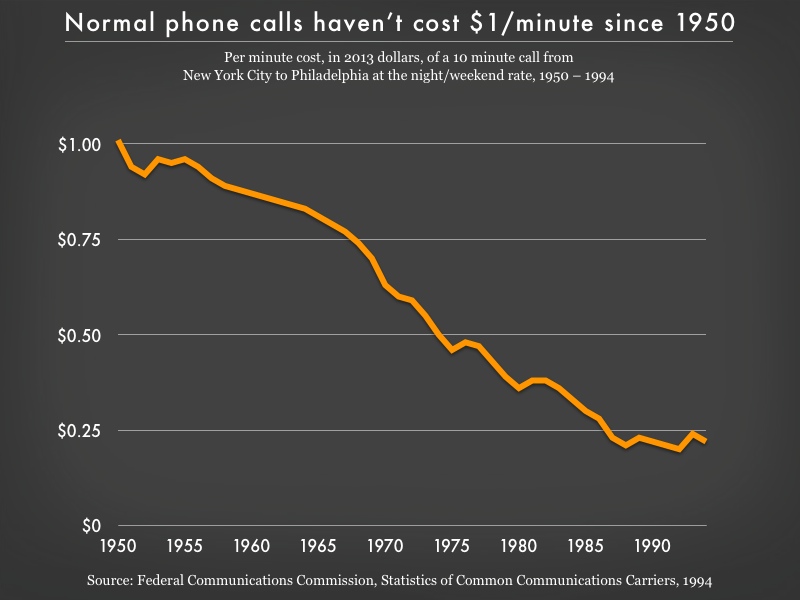CenturyLink and Pay-Tel offer a peek down the rabbit hole of the prison phone industry
Where 96% isn't 96% and clients aren't clients.
by Leah Sakala, September 2, 2014
For most companies, forking over 96% of revenue would be a disaster. But prison and jail telephone companies don’t operate in a normal market by any stretch of the imagination.
In a recent letter to the Federal Communications Commission (FCC), prison and jail phone company CenturyLink explained that it won its contract with the Escambia County, Florida, jail by promising to kick 96% of call revenue back to the jail. To make up for this loss, CenturyLink explains, the company relies on “ancillary fees to cover costs that otherwise could not be recovered in per-minute rates after deducting the County’s required commissions.” (For more on how commission payments and ancillary fees go hand in hand, check out our second report on the industry.)
Now, a 96% kickback/commission must sound very attractive from a sheriff’s point of view. But, as Pay-Tel founder Vince Townsend explained at last month’s FCC workshop, hidden fees can put sheriffs at a major disadvantage. Because the fee revenue is kept separate from the calling revenue, fee revenue lies entirely outside of the commission system. In other words, the only reason why CenturyLink can promise to kick back 96% of the calling revenue to Escambia County is because the company is collecting 100% of the fee revenue. And while CenturyLink claims to have disclosed all its ancillary fees as part of the contract negotiation process, corporate transparency is the exception in this market, not the norm.
Mr. Townsend pointed out that even a sky-high commission percentage turns out to bring in far less money to a correctional facility once the telephone company has kept the fee revenue for itself. Using $100 of gross revenue as an example, he explained:
I couldn’t do this to my clients*…. If I was scraping 60% of the money off the top [in fees] before I paid them commissions, I couldn’t do that. I respect them too much to do that because it is total deception to go in to somebody and say, “Oh, I’m going to give you 80%!” Well, what’s the 80% on? It’s really on $40. What’s 80% of $40? [The actual commission percentage is] 32%.
But one day they’ll wake up [about how hidden fees reduce commissions], and when they do I’m glad I’m on my side and not doing that.
Now, from the companies’ perspective charging high rates and hefty fees sounds like a profitable way to exploit a literally captive market. It turns out, however, that using some of the techniques found in normal markets can be good for business *and* good for families and communities. The experience of states like New York has found that making phone calls more economically accessible stimulates business. Other prison and jail communications companies are choosing strategies like offering discounts on high-volume holidays to introduce their services to new customers, and lowering fees to increase use of their services.
These normal-market-type tactics are unfortunate anomalies in the prison phone industry, but the movement for fair prison and jail communication policy is making steady progress. The FCC’s first order ruled that the prison and jail phone service fees must be based on the actual cost of doing business, which does not, the order emphasized, include handing over the majority of calling revenue to prison and jail systems. On the state level, places like Alabama are also taking statewide action to rein in the industry’s fees and kickbacks.
Be sure to stay tuned to see how the FCC and states’ next steps keep the ball rolling towards a fairer and more just prison and jail phone market.
*Just to clarify, Mr. Townsend refers to the correctional facilities as his “clients,” but of course who’s paying all the money that is turned into kickbacks and fee revenue? The families of incarcerated people.
